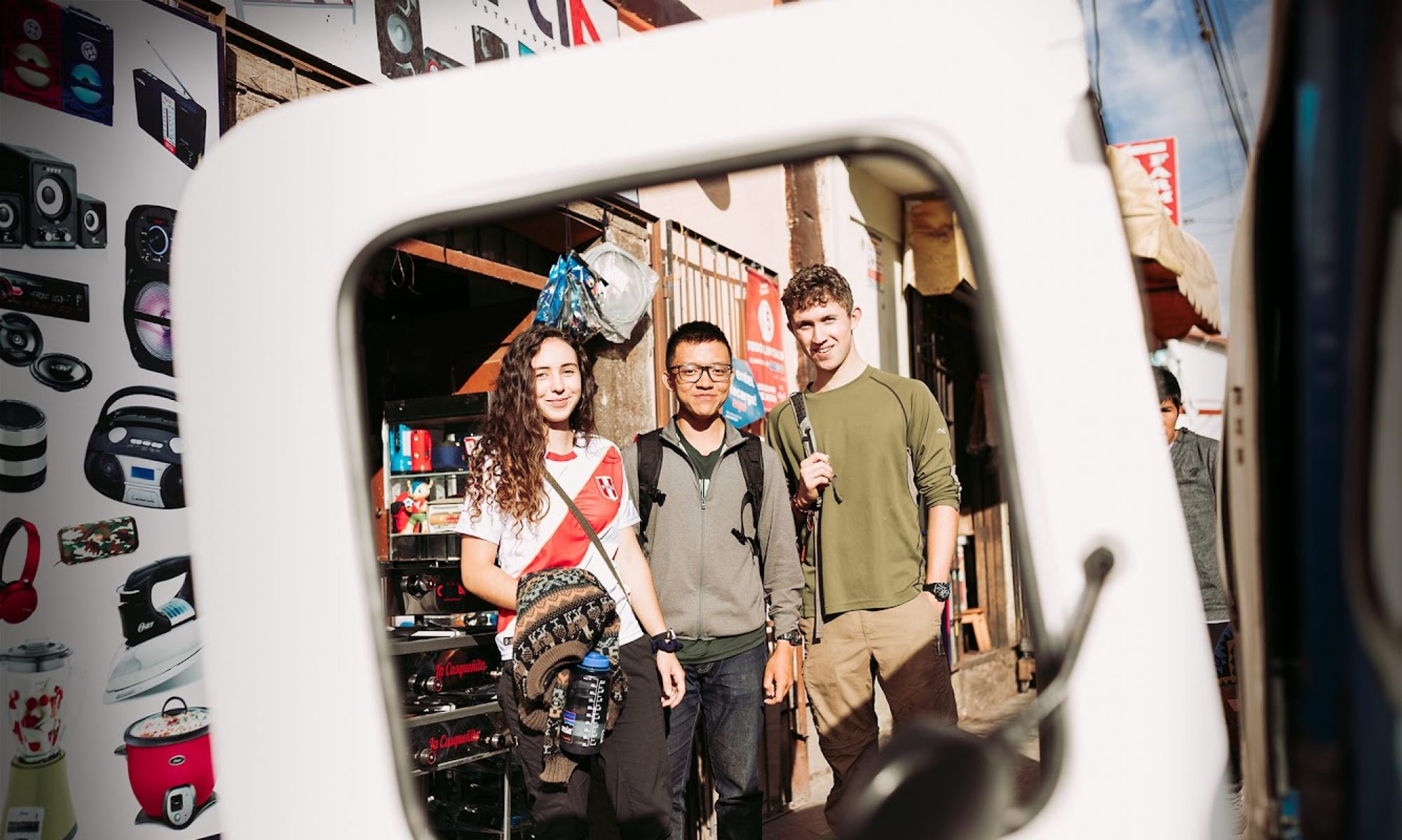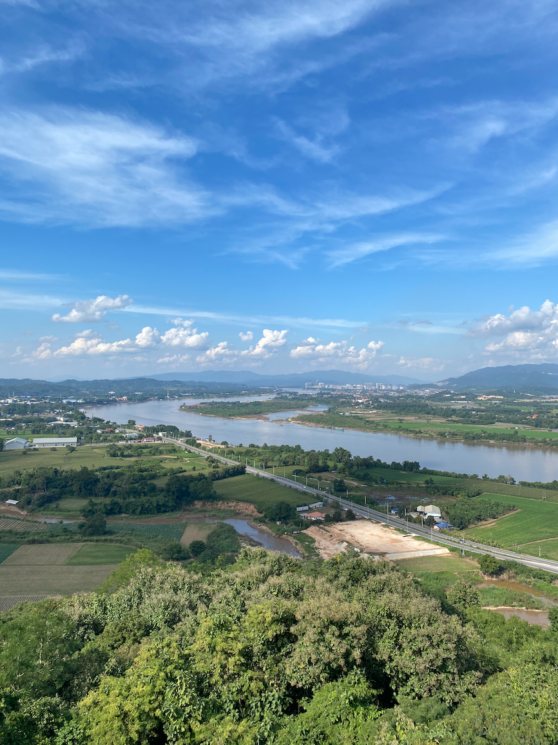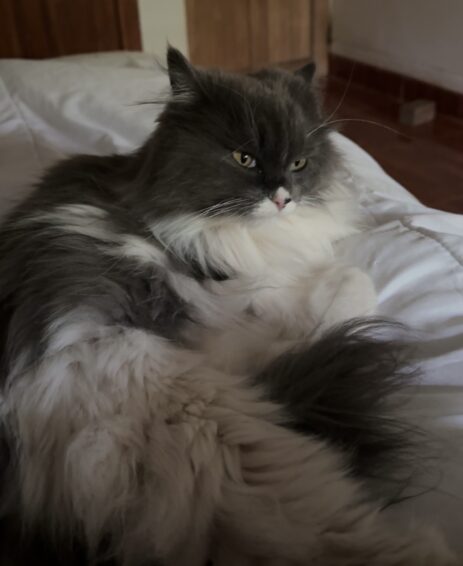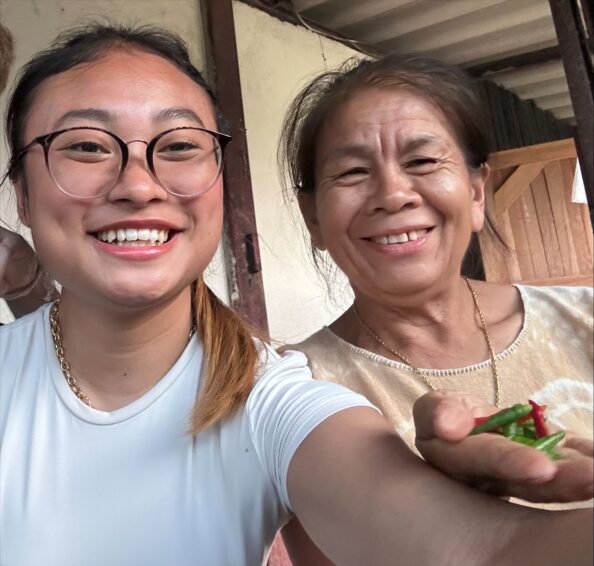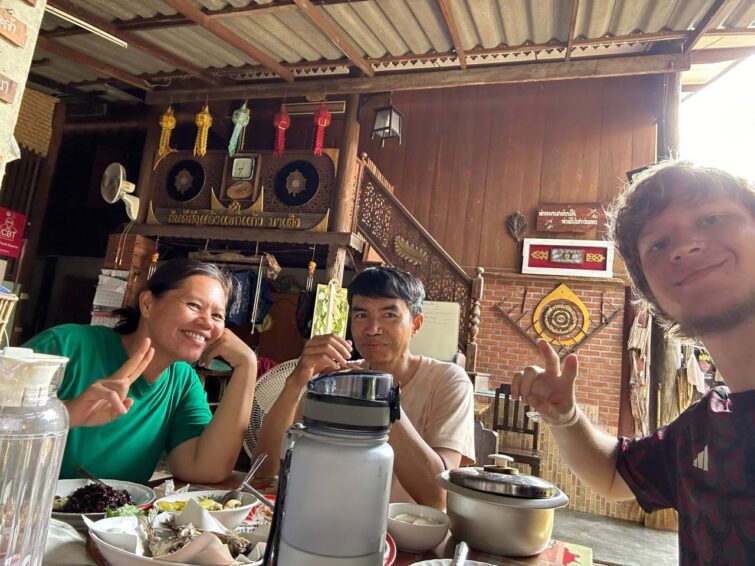by Nicolly
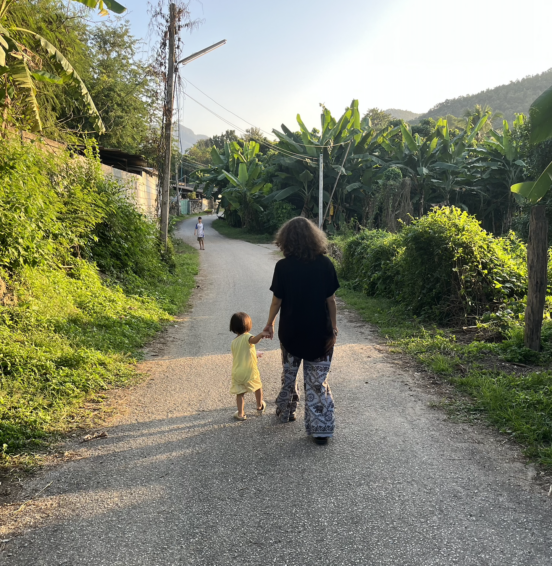
In the Thai language, kít means to think/thinking, and thŭng means reach/reaching, but kít thŭng, together, means missing someone or something. Or, in Thai, thinking about reaching someone. This expands the definition of missing someone to me. It goes beyond celebrating memories or looking at the past, even wanting to see someone immediately. When you want to reach someone, you want to be part of their ‘now’. You want to be by their side and see them achieving their dreams and goals.
Kít thŭng makes you want to once again wake up every morning hearing your little host sister asking Pii, ti nai? (where is my old sister?) and knocking on your door. You want to sit at the table with the family that welcomed you as a daughter and ask them about their day. You want to answer aròi mâak mâak (very delicious) when they ask you if the food is aròi mái? (Is it delicious?). Kít thŭng makes you wish to bike around the village and have all the neighbors asking you bpai nai? (Where are you heading to?). This expression takes you back to lên bon (playing soccer) with all the village kids from the afternoon until dusk.
It makes you want to head to Mae (mom) Wandee’s house for lunch and eat sôm dtam (papaya salad) with kâo nǐaw (sticky rice). Kít thŭng is like an urge to wake up at 6 every morning and go mushroom picking with Mae Wanna. It makes you think about Mae Tim’s kindness and how she always invites you to everything with her family. This expression makes you want to play pool with friends in your neighbor’s shop and drink Chang beer. Kít thŭng makes ‘we win’ always, no matter what. Kít thŭng is when you want to hear his voice singing a Jack Johnson song. Or any song. Kít thŭng is seeing tears in Maes’ eyes when saying goodbyes, but so happy that we all met and had this special time together.
Kít thŭng is the feeling that overflows your heart from now on and makes you think about all the love and kindness they gave you in those 45 days of homestay. Kít thŭng is why you want to go back to Huai Lan in Chiang Mai, Thailand.
Kít thŭng is saudade (word for this feeling in Brazilian Portuguese).
Originally posted here.
